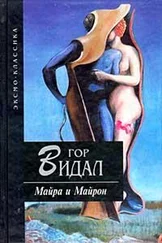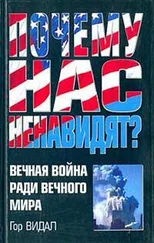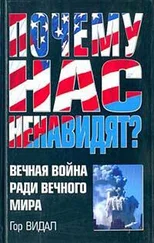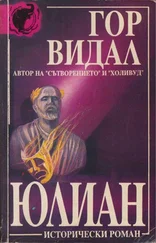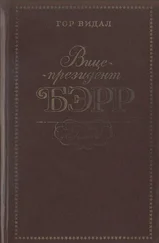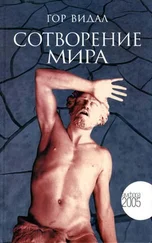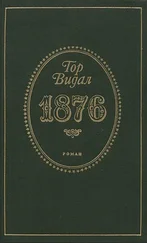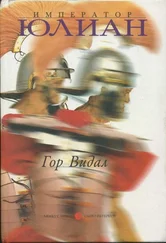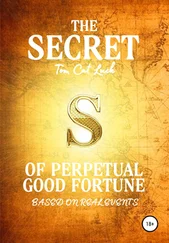Гор Видал - Perpetual War For Perpetual Peace
Здесь есть возможность читать онлайн «Гор Видал - Perpetual War For Perpetual Peace» весь текст электронной книги совершенно бесплатно (целиком полную версию без сокращений). В некоторых случаях можно слушать аудио, скачать через торрент в формате fb2 и присутствует краткое содержание. Жанр: Проза, на английском языке. Описание произведения, (предисловие) а так же отзывы посетителей доступны на портале библиотеки ЛибКат.
- Название:Perpetual War For Perpetual Peace
- Автор:
- Жанр:
- Год:неизвестен
- ISBN:нет данных
- Рейтинг книги:5 / 5. Голосов: 1
-
Избранное:Добавить в избранное
- Отзывы:
-
Ваша оценка:
- 100
- 1
- 2
- 3
- 4
- 5
Perpetual War For Perpetual Peace: краткое содержание, описание и аннотация
Предлагаем к чтению аннотацию, описание, краткое содержание или предисловие (зависит от того, что написал сам автор книги «Perpetual War For Perpetual Peace»). Если вы не нашли необходимую информацию о книге — напишите в комментариях, мы постараемся отыскать её.
Perpetual War For Perpetual Peace — читать онлайн бесплатно полную книгу (весь текст) целиком
Ниже представлен текст книги, разбитый по страницам. Система сохранения места последней прочитанной страницы, позволяет с удобством читать онлайн бесплатно книгу «Perpetual War For Perpetual Peace», без необходимости каждый раз заново искать на чём Вы остановились. Поставьте закладку, и сможете в любой момент перейти на страницу, на которой закончили чтение.
Интервал:
Закладка:
Anyway, Ms. Reno presided over the largest massacre of Americans by American Feds since 1890 and the fireworks at Wounded Knee. Eighty-two Branch Davidians died at Waco, including thirty women and twenty-five children. Will our Jacobins ever be defeated as the French ones were? Ah. The deliberate erasure of elements of the Bill of Rights (in law as opposed to in fact when the police choose to go on the rampage, breaking laws and heads) can be found in loony decisions by lower courts that the Supreme Court prefers not to conform with the Bill of Rights. It is well known that the Drug Enforcement Agency and the IRS are inveterate thieves of private property without due process of law or redress or reimbursement later for the person who has been robbed by the state but committed no crime. Currently, according to Kopel and Blackman, U.S. and some state laws go like this: whenever a police officer is permitted, with or without judicial approval, to investigate a potential crime, the officer may seize and keep as much property associated with the alleged criminal as the police officer considers appropriate. Although forfeiture is predicated on the property's being used in a crime, there shall be no requirement that the owner be convicted of a crime. It shall be irrelevant that the person was acquitted of the crime on which the seizure was based, or was never charged with any offense. Plainly, Judge Kafka was presiding in 1987 ( United States v. Sandini ) when this deranged formula for theft by police was made law: "The innocence of the owner is irrelevant," declared the court. "It is enough that the property was involved in a violation to which forfeiture attaches." Does this mean that someone who has committed no crime, but may yet someday, will be unable to get his property back because U.S. v. Sandini also states firmly, "The burden of proof rests on the party alleging ownership"?
This sort of situation is particularly exciting for the woof-woof brigade of police since, according to onetime attorney general Richard Thornburgh, over 90 percent of all American paper currency contains drug residue; this means that anyone carrying, let us say, $1,000 dollars in cash will be found with "drug money," which must be seized and taken away to be analyzed and, somehow, never returned to its owner if the clever policeman knows his Sandini .
All across the country high-school athletes are singled out for drug testing while random searches are carried out in the classroom. On March 8, 1991, according to Bovard, at the Sandburg High School in Chicago, two teachers (their gender is not given so mental pornographers can fill in their own details) spotted a sixteen-year-old boy wearing sweatpants. Their four eyes glitteringly alert, they cased his crotch, which they thought "appeared to be 'too well endowed."' He was taken to a locker room and stripped bare. No drugs were found, only a nonstandard scrotal sac. He was let go as there is as yet no law penalizing a teenager for being better hung than his teachers. The lad and his family sued. The judge was unsympathetic. The teachers, he ruled, "did all they could to ensure that the plaintiff's privacy was not eroded." Judge Kafka never sleeps.
Although drugs are "immoral" and must be kept from the young, thousands of schools pressure parents to give the drug Ritalin to any lively child who may, sensibly, show signs of boredom in his classroom. Ritalin renders the child docile if not comatose. Side effects? "Stunted growth, facial tics, agitation and aggression, insomnia, appetite loss, headaches, stomach pains and seizures." Marijuana would be far less harmful.
The bombing of the Alfred P. Murrah Federal Building in Oklahoma City was not unlike Dark Tuesday, a great shock to an entire nation and, one hopes, a sort of wake-up call to the American people that all is not well with us. As usual, the media responded in the only way they know how. Overnight, one Timothy McVeigh became the personification of evil. Of motiveless malice. There was the usual speculation about confederates. Grassy knollsters. But only one other maniac was named, Terry Nichols; he was found guilty of "conspiring" with McVeigh, but he was not in on the slaughter itself.
A journalist, Richard A. Serrano, has just published One of Ours: Timothy McVeigh and the Oklahoma City Bombing . Like everyone else, I fear, I was sick of the subject. Nothing could justify the murder of those 168 men, women, and children, none of whom had, as far as we know, anything at all to do with the federal slaughter at Waco, the ostensible reason for McVeigh's fury. So why write such a book? Serrano hardly finds McVeigh sympathetic, but he does manage to make him credible in an ominously fascinating book.
Born in 1968, McVeigh came from a rural family that had been, more or less, dispossessed a generation earlier. Father Bill had been in the U.S. Army. Mother worked. They lived in a western New York blue-collar town called Pendleton. Bill grows vegetables; works at a local GM plant; belongs to the Roman Catholic Church. Of the area, he says, "When I grew up, it was all farms. When Tim grew up, is was half and half."
Tim turns out to be an uncommonly intelligent and curious boy. He does well in high school. He is, as his defense attorney points out, "a political animal." He reads history, the Constitution. He also has a lifelong passion for guns: motivation for joining the army. In Bush's Gulf War he was much decorated as an infantryman, a born soldier. But the war itself was an eye-opener, as wars tend to be for those who must fight them. Later, he wrote a journalist how "we were falsely hyped up." The ritual media demonizing of Saddam, Arabs, Iraqis had been so exaggerated that when McVeigh got to Iraq he was startled to "find out they are normal like me and you. They hype you to take these people out. They told us we were to defend Kuwait where the people had been raped and slaughtered. War woke me up."
As usual, there were stern laws against American troops fraternizing with the enemy. McVeigh writes a friend, "We've got these starving kids and sometimes adults coming up to us begging for food. It's really 'trying' emotionally. It's like the puppy dog at the table; but much worse. The sooner we leave here the better. I can see how the guys in Vietnam were getting killed by children." Serrano notes, "At the close of the war, a very popular war, McVeigh had learned that he did not like the taste of killing innocent people. He spat into the sand at the thought of being forced to hurt others who did not hate him any more than he them."
The army and McVeigh parted once the war was done. He took odd jobs. He got interested in the far right's paranoid theories and in what Joel Dyer calls "The Religion of Conspiracy." An army buddy, Terry Nichols, acted as his guide. Together they obtained a book called Privacy , on how to vanish from the government's view, go underground, make weapons. Others had done the same, including the Weaver family, who had moved to remote Ruby Ridge in Idaho. Randy Weaver was a cranky white separatist with Christian Identity beliefs. He wanted to live with his family apart from the rest of America. This was a challenge to the FBI. When Weaver did not show up in court to settle a minor firearms charge, they staked him out August 21, 1992. When the Weaver dog barked, they shot him; when the Weavers' fourteen-year-old son fired in their direction, they shot him in the back and killed him. When Mrs. Weaver, holding a baby, came to the door, FBI sniper Lon Horiuchi shot her head off. The next year the Feds took out the Branch Davidians.
For Timothy McVeigh, the ATF became the symbol of oppression and murder. Since he was now suffering from an exaggerated sense of justice, not a common American trait, he went to war pretty much on his own and ended up slaughtering more innocents than the Feds had at Waco. Did he know what he was doing when he blew up the Alfred P. Murrah Federal Building in Oklahoma City because it contained the hated bureau? McVeigh remained silent throughout his trial. Finally, as he was about to be sentenced, the court asked him if he would like to speak. He did. He rose and said, "I wish to use the words of Justice Brandeis dissenting in Olmstead to speak for me. He wrote, 'Our government is the potent, the omnipresent teacher. For good or ill, it teaches the whole people by its example.'" Then McVeigh was sentenced to death by the government.
Читать дальшеИнтервал:
Закладка:
Похожие книги на «Perpetual War For Perpetual Peace»
Представляем Вашему вниманию похожие книги на «Perpetual War For Perpetual Peace» списком для выбора. Мы отобрали схожую по названию и смыслу литературу в надежде предоставить читателям больше вариантов отыскать новые, интересные, ещё непрочитанные произведения.
Обсуждение, отзывы о книге «Perpetual War For Perpetual Peace» и просто собственные мнения читателей. Оставьте ваши комментарии, напишите, что Вы думаете о произведении, его смысле или главных героях. Укажите что конкретно понравилось, а что нет, и почему Вы так считаете.

